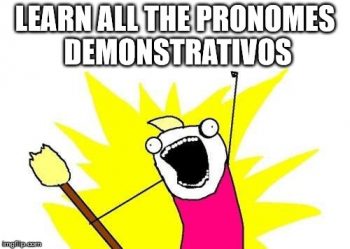Archive for August, 2015
Gênero (gender) em Português Posted by Ester on Aug 31, 2015
In Portuguese all the nomes e pronomes (nous and pronouns) have a gender. They are always either feminine or masculine. Even though it might be easy to tell which ones are feminine and which ones are masculine – since femininos usually end in “a” and masculinos in “o” – there are some exceptions which are…
Oi, gente! (Hey, you guys!) Posted by carol on Aug 25, 2015
Olá, Gente (Hey, you guys!) My name is Carol and I am Transparent Language’s newest member. É um prazer conhecer vocês (Nice meeting you!). I will dedicate this post to introducing myself and telling a bit about my English-speaking background. I’m Brazilian, native from Belo Horizonte, located in the beautiful state of Minas Gerais. I’ve recently graduated…
8 expressions with hora (hour/time) in Portuguese Posted by Ester on Aug 24, 2015
Tudo bem, gente? Two weeks ago we saw some tips on how to tell the time in Português. This week we are taking one step ahead and learning some expressions and phrases that have the word hora (hour/time). Passou da hora. – translates as “it’s about time”. Exemplo: Melissa tem dezoito anos, passou da hora…
Protestos no Brasil – Protests Posted by Ester on Aug 17, 2015
Oi gente. People taking to the streets to protest in Brazil is something that has been happening for the past 2-3 years. So this week we will talk about the main points Brazilian protestants are trying to make. In addition, we will also be checking out some vocabulary related to it. Vocabulário: Escândalo Lava Jato…
Horas (time) in Portuguese Posted by Ester on Aug 10, 2015
Beleza, galera? What do you do when your phone is out of battery and you do not have a watch or a clock to check the time? It is easy: just ask someone on the streets. A good way of practicing it is to ask people on the streets what time it is even if…
Demonstrative pronouns em Português Posted by Ester on Aug 3, 2015
Oi gente. You may have already learned the pronomes demonstrativos, but it’s worth having another look, especially with the combinations below: Isso, esse, este, essa, esta (all meaning “this” or “these”) are used when you are referring to something which is close to you. Esse, este – this (masculine) Always followed by a masculine…








